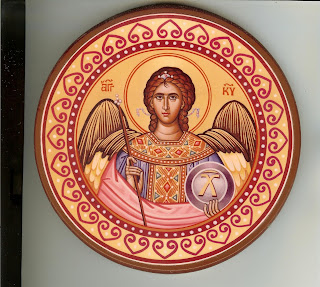Latin phrases often evoke strange,
and sometimes bizarre, associations for me. At Christ Church
Cranbrook in 2011, as I listened to the choir chant the traditional Advent “O
Antiphons”, these are some of the random thoughts that occurred to me, and I
wrote down…
O sapientia. O wisdom. O intelligibility. O logic. O sanity. O
mathematical equations. O sentence structure and syntax. O coherence and
structure and form. If objects are indeed intelligible, “does not the
intelligibility of the object presuppose an intelligent ground?” (Bernard
Lonergen)“O O O O that Shakespearian Rag— It’s so elegant
So
intelligent…” (T.S. Eliot) O sapientia, “quae ex ore altissimi prodisti, and
covered the earth like a mist.’ (Ecclesiasticus 24:2) O O O O.
O Adonai. O mighty. O fire of the Burning Bush. O consumption
unconsumed. O point dimensionless, at which Being emerges, unexplained, from
Nothing, at this moment coaxing atoms into material existence from the vortex
of whatever whirls at their center, at this moment spinning us off from the
limitless center, spinning us off as atomic dervishes, whirling mightily,
whirling on the seamless line where Nothing ends…
O radix Jesse. O root. O radish. O turnip. O beet. O rutabaga, O root
vegetables of every kind, buried safely under earth and snow, beyond the need
for retaliation or revenge, beyond the need to hurt or destroy in all the holy
mountain, feeding us far into the winter, feeding us when all other food has
failed, feeding us jam noli tardare – never tardy, rarely served in
fashionable restaurants, barely noticed by government inspectors, ever
abundant, ever prodigal, ever rooted/radix/radical/ and real…
O clavis David. O key. O combination to the lock. O password. “You open and
no one closes; you close, and no one opens”. Sedentum in tenebris et umbra
mortis… sedimented in darkness and under the umbrella of death… buried
under yards of earth alongside the beets and radishes… buried, but here
unearthed by the descent of a mighty silence, its power unlocked by chant, loud
organ, and this clavis David…
O oriens- O rising dawn. O morning star. Directional orientation for
every nomadic tribe, gravitational force without magnetism, center without
circumference, beloved of navigators, goal of every compass, hope of the lost
…(disoriented in thick woods, I came across my own boot-prints in the snow,
consulted my compass, saw how lost I had become, saw, astounded, how much counterintuitivity
would be required to become unlost again. From whence did all these benign
themes originate? Hope for the lost…release of prisoners… kindness to
strangers… peace among peoples… food for the hungry…water in drought-stricken
places… a universal vision of gentleness and mutual peace… how did such notions
come to swirl together with such force within the literature of one small
middle-eastern country?... How do such far-fetched notions come to resonate so
powerfully with us still?
O Rex gentium… O ruler of the unruly and the alien, the unbelievers and
the unsaved…O rock and cornerstone…lapisque angularis…
Two Chinamen, behind them a third,
Are carved in lapis lazuli,
Over them flies a long-legged bird,
A symbol of longevity;
The third, doubtless a serving-man,
Carries a musical instrument.
Are carved in lapis lazuli,
Over them flies a long-legged bird,
A symbol of longevity;
The third, doubtless a serving-man,
Carries a musical instrument.
W.B. Yeats, Lapis Lazuli
We are the long-legged bird, lifted
by the music for a bird’s eye view, lifted high above the angle of the rock,
our lapisque angularis, which is our listening-post, our perch, our launch
pad, and, if we ever hope to come to earth again, our landing-zone.
O Emmanuel… O God-who-is with, with us, with it …with our children in an
unknown future, with these singers in a flourishing past, with us witless
pilgrims come from outer space, washed up unexpected on what Holy Isle?











